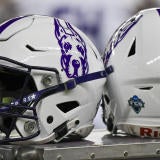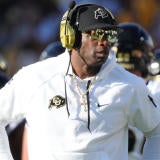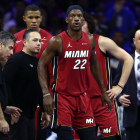Life as a student-athlete sure is great sometimes. You get your education paid for, you get to continue playing sports, and occasionally you even get to sleep in a locker room because a delay in your scholarship funds keeps you without any money for over a week.
Wait a second, that last part doesn't sound all that fun, but that's what happened to nearly 60 Hawaii athletes when their scholarships were delayed.
Hawaii athletic director Ben Jay told the Associated Press that clerical problems delayed the processing of scholarship funds for both athletic and academic scholarships at the school. The funds -- which cover roughly six weeks of expenses for students going to summer classes and living off campus -- were delayed nine days, and as a result, seven of Hawaii's athletes got by sleeping in the locker room. They spent their time eating energy bars and watching television, so it was just like daily life in your own apartment, except in a locker room.
"When it comes right down to it, we need to plan better," Jay told the AP. "This should never happen again. We have a responsibility for these kids to make sure they're taken care of. That's what their parents expect of us."
Making things better is the fact that Jay also said that the school couldn't help any of the students out by getting them groceries or taking them out to eat because it'd be a potential NCAA violation. Though before we jump on the NCAA here, John Infante of AthleticScholarships.net points out that Hawaii could have received a waiver, and may not have even needed one.
A waiver to pay for housing and meals for athletes during the delay and/or loans for them to pay deposits and rent seems like a slam dunk. That might even be approved as what the NCAA calls a “phone waiver”: meaning a school calls the NCAA and receives verbal permission to do something that is otherwise not allowed by NCAA rules.A waiver might not even be necessary under the NCAA’s new interpretations philosophy. Say the proposed action is advancing the athletes money to pay their rent and deposit and for groceries. There is essentially no benefit to the athletes; they are actually just getting what they should have gotten but for the NCAA’s error. Not having a place to live and having to eat energy bars instead of real food is a health and safety issue. This seems well within the “green” category under the new interpretation philosophy and Hawaii should have been able to help these athletes even without involving the NCAA.
So it sounds like Hawaii's best bet probably would have been just not screwing up the scholarship funds in the first place, but still, the fact Hawaii even has to consider whether or not feeding its players is an NCAA violation goes to show how messed up the system can be.





















